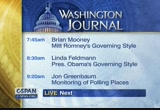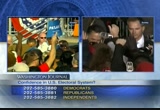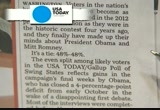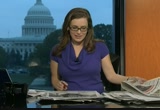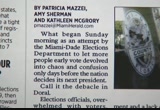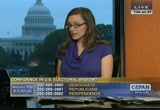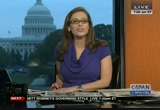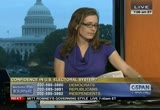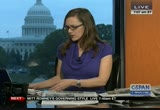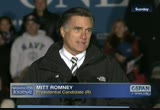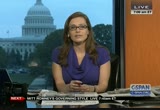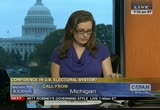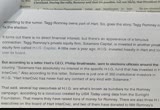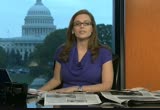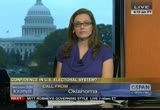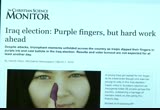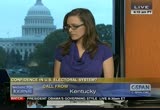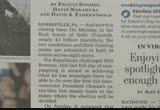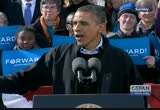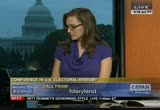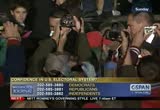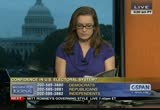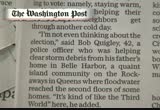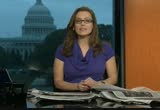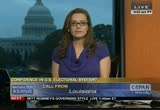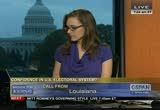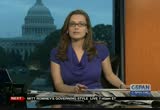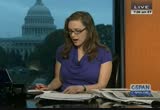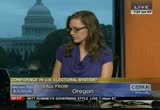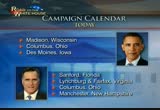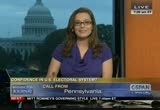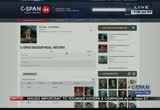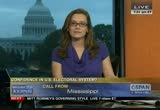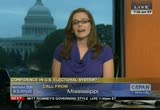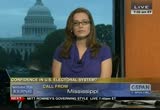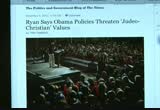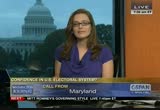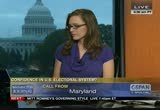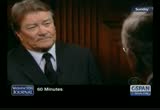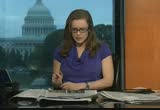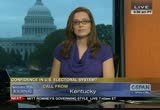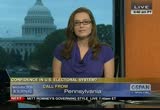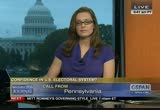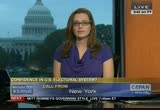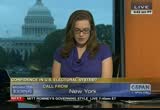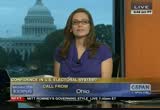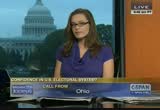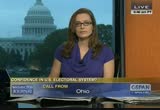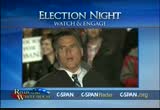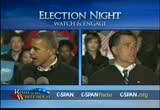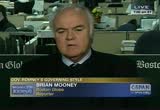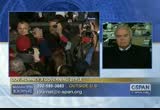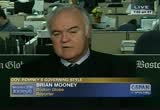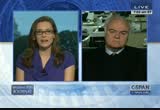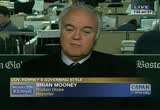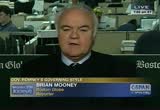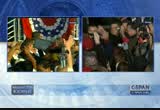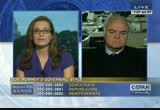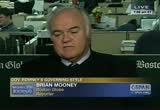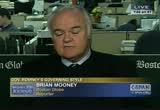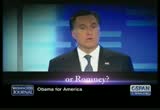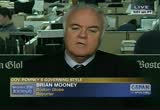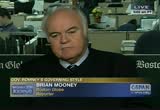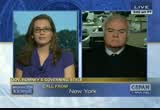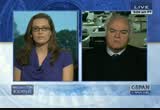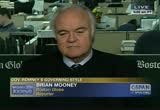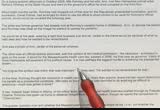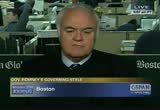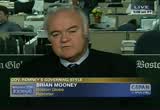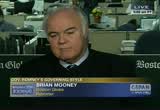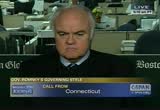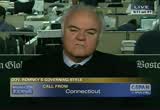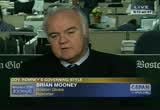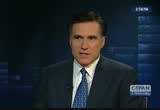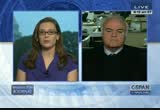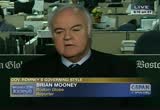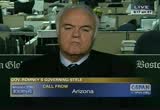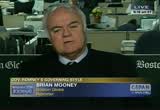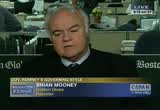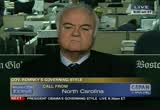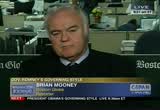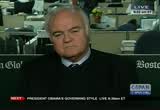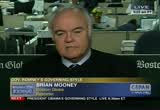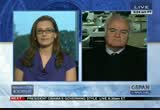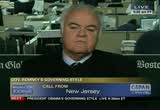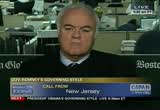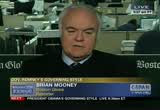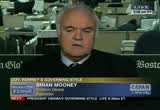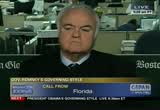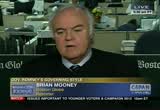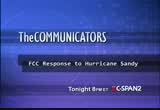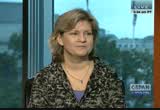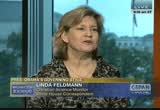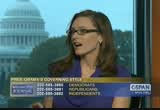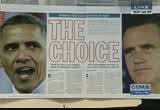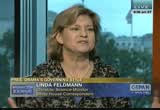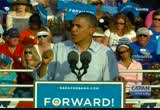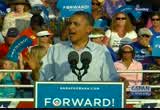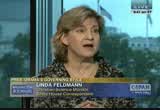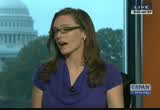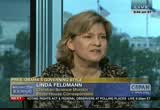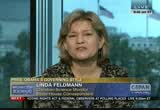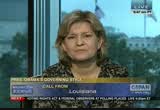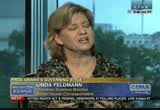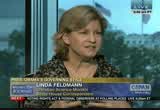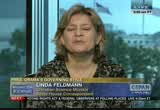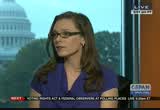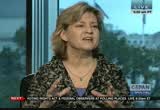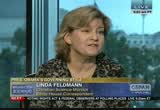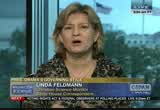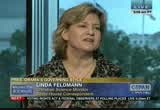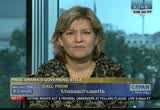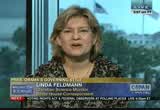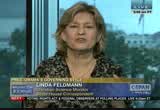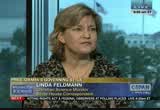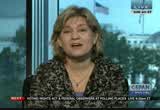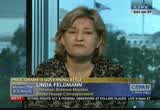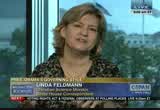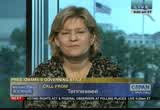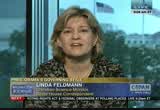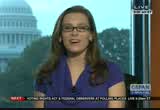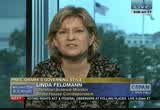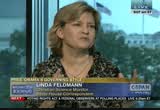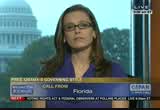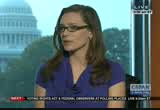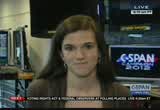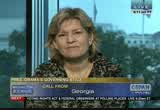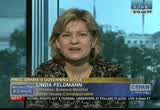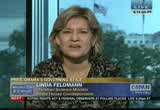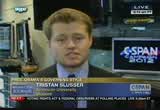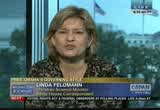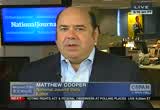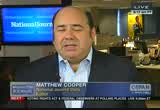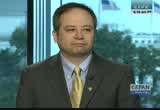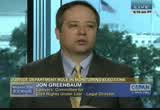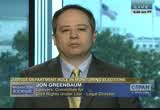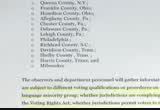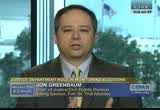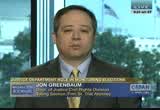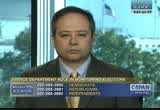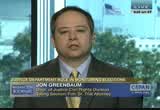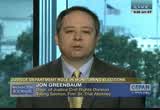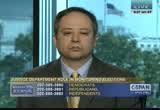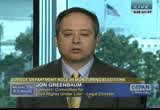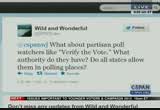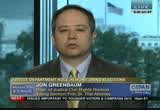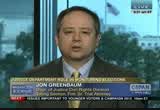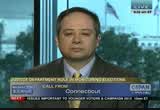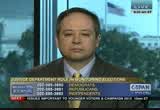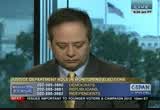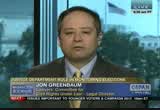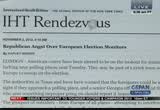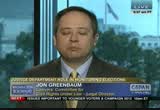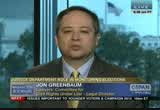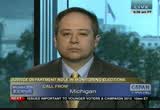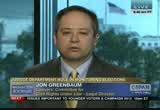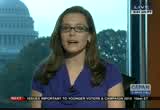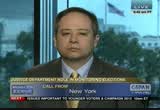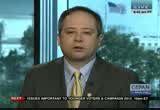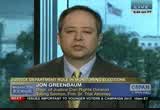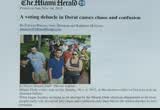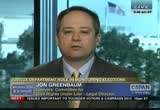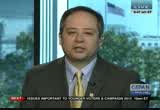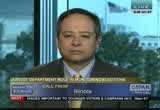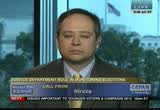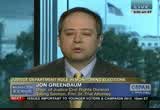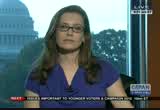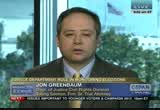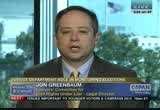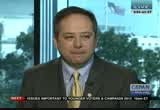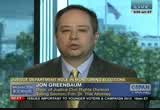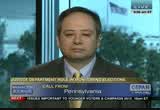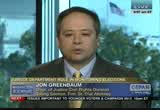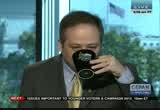tv Washington Journal CSPAN November 5, 2012 7:00am-10:00am EST
7:00 am
2007. then we will look at president obama's the governing style. then how the justice department monitors:places. "washington journal" is next. ♪ host: is the final push of campaign 2012. good morning, welcome to "washington journal" on this monday, november 5. candidates crisscrossed battleground states of the weekend, appealing to voters to get to the polls and went over undecided voters. as americans go to the polls tomorrow and have been voting early, how confident are you in the u.s. electoral system? here are the numbers to call.
7:01 am
host: you can also find us online, using social media. send us a tweet using journal@c- span.org -- twitter.com/c- spanwj. or find a conversation on facebook. you can also e mail us, twitter.com/c-spanwj. how confident are you in the u.s. electoral system? we will bring some articles on how early voting is unfolding, but first, here is the headline from "usa today." 48% to 48%. "it comes down to turnout."
7:02 am
host: what do you think about the u.s. electoral system as we head into the final day? voters go to the polls tomorrow. in "u.s. a today," the two candidates made their pitch for why you should vote for them. barack obama, mitt romney, writing in to "usa today," sharing their opinions. president obama says -- "do not give up, we have had a rise in jobs and a rebound in growth."
7:03 am
governor romney says -- "we need a new beginning." looking at the headline of "the wall street journal," it gives us an idea of where the candidates were over the weekend. you can see them in these key battleground states, places like cleveland, ohio, and president obama in cincinnati, ohio, also making stops for mitt romney in new hampshire. president obama in places like florida and wisconsin. if it is a question of voting issues in florida, let's look at "the miami herald." election officials shut the doors to headquarters, angering voters, resuming the proceedings one hour later. the question here is on early voting in the state of florida. it was an attempt to allow more people to early vote, it
7:04 am
devolved into chaos and confusion just days before the nation decide its next president. election officials -- host: so, questions there, in florida. let's cut to the phones and hear what you have to say. joe, the morning, iowa, good morning. caller: as far as the electoral college system, i disagree with that, it should be the popular vote.
7:05 am
it is the people that it is about. host: you do not like the electoral college? caller: excuse me? call -- host: you do not like the electoral college. caller: yes. if you guys remember, ronald reagan said to trust, but verify. host: we are seeing that the candidates are paying attention to iowa. iowa certainly gets a lot of attention in the primary, but you are also seeing a lot of candidates at this late stage in the game. have you been to any rallies? caller: you bet. i will be there this evening. host: thank you for sharing your
7:06 am
perspective. let's go to stewart, virginia. democratic caller, hello. caller: thank you, c-span. i agree with it, as long as it is not closed. that is when it becomes tedious. i would like to say that, to the folks who have a job with corporations, do not let them believe you. they will not know who you vote for. you will keep your job. if they ask, just tell them what they want to hear and vote the way you want. host: when you look at the voting techniques, do you have any concerns about security? the way that things are done? are you confident they your vote will be counted?
7:07 am
caller: it is like anything else, it is done on computers, which can shut down and fit -- and failed. i doubt that that will happen, but it can happen. things are good in virginia. everyone has a job that once one. i think that things are looking up. i say to give obama four more years and see what he can do. host: "usa today" looking at mitt romney, saying he is making a late push in tight states. scott, big hear from
7:08 am
sandy, texas. how concerned are you about the electoral system? caller: i believe that we will be able to overcome the lying and cheating of the democrats. they are going to cheat. they are going to have voter fraud, there is no doubt about it. one of the best indicators of that is their opposition to the picture id. they are going to cheat, they are going to live, they will claim that the ends justify the means, that lying is acceptable as long as you advance the cause. we are just going to have to overcome that, and we will. host: let's look more at the governor romney visit to pennsylvania. postal let's listen to some of the mitt romney closing arguments -- host: let's listen to some of the mitt romney
7:09 am
closing arguments in morris hill, pennsylvania. [video clip] >> we have journeyed far and wide for america's future. now we are almost home. one final push will get us there. we have many long days, short nights, and now we are close. the door to a brighter future is there, open, and waiting for us. i need your vote, your work. i need you to walk with me. let's take it back, america. [unintelligible] host: that is governor mitt romney, and pennsylvania. michigan, david, democratic line. we are talking about the electoral system. we are also talking about voting booths and how you actually vote. how secure do you think the technology is?
7:10 am
what do you think? caller: thank you for c-span. it is about the only place where we get real information. thank you for taking my call. number one, i do not trust the electoral system, the way it is set up. sonosedly mitt romney's owns quite a few voting machines in ohio. the old saying is that these republicans are getting caught left and right cheating in florida. here in michigan they are, and in ohio. if republicans do not cheat, they cannot win. they cannot win on issues, they are nothing but liars. mitt romney's whole campaign is based on lies. american voters, if they go ahead and vote for this man and cut their own throat, that is
7:11 am
fine, but the cheating, the big money, the way that republicans have redistricted republican run states, if they do not cheat, they cannot win. i do not trust that system at all. host: you brought up the question of one of mitt romney's sons and voting machines in ohio. npr did a story about this a few days ago. "his son, not gunning to rigged votes." here is the story -- host: as we turn the page and look at more, it says --
7:13 am
host: let's hear from our next caller, frank, oklahoma. how confident are you in the electoral system, frank? caller: gosh, good morning, my confidence is kind of low. everyone remembers all the folderol going on with those people during the last couple of elections. one of them went to prison for it, i believe it. my point is that god decides who is going to rule over other men. all you have to do is read the book of daniel [unintelligible] and the] sent -- and the letter that [unintelligible] sent out. read about the romans in the first chapter, you can see how the human race has devolved and has gotten more corrupt.
7:14 am
i vote for the party, not the person. i can go ahead and vote for mitt romney, even though he is a roman -- mormon. i believe that obama is more of a muslim than anything. host: even though he is a christian? caller: who says he is a christian? he does not. host: he does. caller: i have never seen him at a prayer breakfast. host: are you confident that things will work tomorrow? caller: in oklahoma it is a fair and closely watched process. it is kind of trusting, but oklahoma usually goes heavily republican anyway. host: let's look at these tweet s. host: referring to elections in
7:15 am
places like iraq, a finger that was inked, here, even the too young to vote, the sign that you get that you have already voted so the you cannot vote twice. this story out of carson city, nev., a woman was arrested on charges that she tried to vote twice i edberg -- in the presidential election. host: jim, louisville, kentucky, republican line, good morning. caller: my party has made me ashamed.
7:16 am
i would say that in the state of kentucky, if i were to vote for president obama, my vote is worth less. i think the solution would be to require each state in the country to have a proposal -- proportional electoral system, so that even if your person loses, your vote counts for something. plus, it would make the candidates visit most of the states. lastly, it would be rare to have a tie or a runoff. as far as paper ballots, ky does have that system mentioned in ohio -- kentucky does have that system mentioned in ohio, which is great. host: from "the washington post," candidates are said to visit eight states on the eve of the election. "now it is closing time."
7:17 am
host: president obama, also making his closing arguments. let's listen to what he had to say in new hampshire this weekend. [video clip] >> ultimately, it is up to you. you have the power. you will be shaping the decisions in this country for decades to come, right now, in the next two days. if you are willing to work with me, stand with me, knock on some doors with me, make the phone
7:18 am
calls with me, turnout for me, we will win new hampshire, we will win this election. we will finish what we started. we will renew the bonds that do not break and reaffirm the spirit that makes the united states of america of the greatest nation on earth. host: that was president obama. let's hear from emanuel. good morning. caller: good morning. host: how confident are you in the electoral system? caller: i used to be confident about it. now i am no longer confident about it. i am no longer confident about it because if we have a one- vote, one person one vote system, i do not see why it should be otherwise. if everyone votes, their vote
7:19 am
should be counted as one of. then they should be added up. as far as mr. rahn is concerned, i do not think he is trustworthy. mr. romney has five sons. none of them have entered a branch of the armed forces. there are five branches of the armed services. yet mr. romney claims to be a patriot. how can he be a patriot, how can he beat? he wants to be commander-in- chief of the armed services. if he becomes commander in chief of the armed services, he will order the troops into battle, into harm's way. he will order other people's children into harm's way except for his own children.
7:20 am
i do not think that that is fair. host: let's hear from kevin, calling us from new york state. how are you? caller: not bad, life is good. host: tell us what you think about the electoral system and how confident you are in it. host: certainly -- caller: certainly from hearing about voter suppression, i have a tremendous concern about that. i have an even greater concern about any politician who would advocate for the elimination of epa sit -- standards. sandy and i mean are two good examples of how the new normal is going to create horrific scenarios throughout the world and in our country. any politician who makes statements about eliminating
7:21 am
7:22 am
7:23 am
7:24 am
the media, who buys into the democrat's idea that there is a problem in the electoral process, rather than holding to your journalistic creed of objectivity and holding only to the facts. i have seen the facts. i have worked in the polls here for a long time. there is a lot of concern about the south and you see the media playing it that they are seeing poll watchers in the department of justice sending people to the south, but what i just heard on c-span was like an advertisement for obama. he got to say his closing statement again on time for c- span, which i have always held to be greatly objective until this morning. host: i want to let you know, we played governor romney before replayed president obama. we will have a balanced look at them throughout the morning. host: that is great, but what i
7:25 am
see in my community as far as confidence in the election process, -- caller: that is great, but what i see in my community as far as confidence, i see the machines and how they are locked up. the checking of the machines before and after the process, that is, in fact, the truth. the american public needs to know the truth. not what is on the internet, not the fear that we are seeing in the media, which plays into things that i heard -- after obama won, on the clear channel radios, people saying they did not steal it from us this time? that is a horrible thing. i had no idea that people thought we were stealing elections in this country. host: can you give us more of a sense of what you'd do and what you see on the ground?
7:26 am
caller: yes. in early voting, until this particular early voting, i saw community organizers going wild. they would use candidate cars, clothes, and resources to call voters that were still drop from their meals and the liquor that they had been served at the candidate barbeques, they call them. they are taken directly to the polls, they still smell liquor. they had no identification. they were just signing affidavits and were voting upon sworn affidavits. people need to know that the majority of those impaired voters were listed as a literate so that the community organizers that hold them to the polls were allowed to go into the booth with them. host: we will have more in this program about the justice department's role.
7:27 am
we will be visited by john greenbaum, who sat with the lawyers committee for civil rights under law. let's take a look at some details about the justice department and its planned for -- plans for the election in 2012. host: this from twitter -- host: she wants to make sure that we do that as well. denise, portland, oregon. hello. caller: good morning. i live in a blue state, not a battleground state. i voted for obama because i am afraid of mitt romney, and i think it is sad that we have to
7:28 am
vote for the lesser two evils. i think that people can figure out what i mean. i would like to know if anyone can tell me why, exactly, you should vote in a state that is not a battleground state, other than it eventually turns purple. do our votes count? i just learned about the electoral college. host: we can look at the map of the electoral college to see how that breaks down and see what those states look like. we can talk more about the electoral college. there, you can see how many votes they get. and you can also see how they are leaning and where things are looking. democrats in blue, republicans in red. we will have campaign coverage throughout the day, today, headed into tomorrow and election day. the campaign calendar, you can
7:29 am
see where they are headed. madison, wisconsin, the morning, iowa, and you can see -- madison, wisconsin, iowa for the president. mitt romney is headed to florida, virginia, ohio, and new hampshire. we will have live election coverage tomorrow night. on c-span you confine the results of the election coverage as it comes in. we will be looking at the house, senate, and gubernatorial races from around the country. we will take your calls, read your twitter messages, and get your feedback. you can find out more on our website, c-span.org. barry joins us now from beaver town, pennsylvania. what is your love and confidence in the electoral system?
7:30 am
caller: thank you for taking my call. i am a first-time caller. i have a fair amount of confidence, but i would like for someone to explain why the electoral college was put in place. there seem to be comments on both sides this morning. another comment, the courts have ruled on some of the voter id laws, canceling or postponing. so i am thinking, well, for the courts to rule, people are running for powerful offices. they will try to use every advantage that they could possibly use to game that office. if you could explain the electoral college, please? host: we have done some segments about the electoral college. you can find those on our
7:31 am
website. one of the guests that we had was jonathan turley, a professor of law here in washington, d.c. you can go and find that on our website in the video library. let's look at pennsylvania, since that is where barry was calling from. this is from "the washington post." host: evelyn joins us from mississippi on the republican line. where are you calling from in mississippi? caller: jackson, mississippi. host: good morning. what do you think about the u.s.
7:32 am
electoral system? caller: i would rather see just the popular vote. sometimes i do not think it is fair. but the one thing i wanted to call in about, about obama being a christian, one sunday morning about one year ago i was getting ready to worship and he was talking on television. i actually heard him say i am muslim. i was talking to a friend the other day and she said she heard the same thing. so, he is not a christian, he is a muslim. he said it on television. eyes and ears do not deny. host: i am sorry to say, i did that here that, i am looking at articles about that. if the president says he is a christian, does that matter to you? caller: did you hear him say that he was a christian?
7:33 am
host: we have aired programs on c-span where he talks about his faith and background, yes. caller: i also heard him say that he is a muslim. besides, the other thing, he is profane to things that god has said in the bible. that are wrong. the gay style, and also abortion. and he is for that. host: do you look at mitt romney's mormon is some? do you look at that in house and senate races? is religion what to think about? caller: i look at people's morals. plus that is not the only thing. i am on medicare. and if obama care goes through, it is going to hurt me. it is going to take things away from me, medicare will be taken away. i am concerned about that,
7:34 am
because it worries me. i have been on my knees, praying for the situation. not the one that mitt romney was put in, but i have prayed for got to put in who he chooses. it is his decision, not mine, not yours, it is god's decision. we are leaving it in god's hands. host: this is from "politico" a story about the president, his religion, and suspicions that he is muslim. host: here is a story from "the new york times" over the weekend looking at the role that religion is playing in campaign 2012.
7:35 am
7:36 am
up by the constitution, hundreds of years ago. there is a good reason for that. it is to protect us from our democratic system. in those days it was good and working well. looking at the electoral map across the country, i am a ph.d. scientist and a christian. looking at this system, scientifically, going across the country, it is a dangerous said out. let me tell you why, the reason for the reason of the middle of the country being read, it is easy to figure out, logic and common sense. it is hard for me to believe that so many people are hateful against a certain president because of the color of his skin and so forth. if you go across the country and look at the protesters, clear channel, those 50,000 watt stations that broadcast and last
7:37 am
out things that are completely false. they would kill their own grandmother if they were allowed to do so. this is dangerous to me. you have all of those right wing radicals just misinforming people, which is dangerous to our culture and democratic system. host: we have a twitter message coming in -- host: as i mentioned, we will hear more about the justice department's efforts to monitor the elections. harry reid and mitch mcconnell, leaders in the senate. senator harry reid in nevada, the majority leader, and mitch mcconnell, of kentucky, the minority leader, both of them talking about why it is so difficult for democrats and republicans to compromise. h[video clip] >> we have a situation here
7:38 am
where compromise is not what we do any more. in your program, john boehner said that he rejects the word compromise. that is exactly what he said. my friend, senator mcconnell, said that his single most important achievement is making sure the president -- that the president is a one-term president. >> compromise can be very difficult. we have different views on how much taxation and government should have, as well as regulation. it is not easy to reach agreement when you have a very different views of the direction the country should take. host: 60 minutes, talking about compromise. 44 state legislatures in play, "6000 seats at stake."
7:39 am
we will be bringing you the results of gubernatorial races as well as house and senate races across the country. thomas joins us from frankfort, ky. hello, thomas. caller: i hope that you will give me as much time to state my case at this you give yourself to defend obama. obama is a muslim. what he is trying to do in this country is install a socialism government, like his father did in kenya. obama almost has us bankrupt right now. we are $16 trillion in debt. once there is unrest in the streets, then he will order his rebels in the middle east to make their move and all the muslims in america to make their move and the country is overthrown.
7:40 am
people like yourself do not understand what is going on, i do not know if you are familiar with the nuremberg trials, where the nazi officials and military officials were brought to trial in 1949. the people of germany were pleading ignorance to the fact that there were furnaces burning the jews. you are pleading ignorance. that is what you are going to do when this happens in america. host: i am only stating what we read in news reports and what the president has said. i am sorry that you feel we are giving a perspective, but our goal here is to share with you what we find, i can share more articles of president obama talking about his faith as the morning goes on. good morning, pennsylvania.
7:41 am
caller: i appreciate the c-span a balanced approach, it is amazing. [unintelligible] it is harry true, but you know, obama came in -- it is very true, but you know, obama came in [unintelligible] fix up the economy. we have to give him a chance. that is a good thing for democracy. host: tell us about voting in pennsylvania. caller: i go to the university of pennsylvania. we have a lot of native american workers. they are very pro-obama, no matter what goes on in the world. i was speaking to them before the 2010 elections, they said
7:42 am
that they failed and lost to those republicans and that they would never vote again, they remembered the hot weather. i think that they are remembering the failure of 2010 and, waiting in line for hours. they will not be coming out in the same numbers. host: this message from twitter -- host: bernice, new york, new york, democratic line, good morning. caller: my concern is basically, when you have florida shutting down the voters to voice their opinions at the polls, and then you give them a paper ballot suggesting that their boat might be counted, it is a concern to
7:43 am
me. because the people taking your ballot who closed the doors for you not to vote, how can you, how can you sincerely believe that they will take those ballots and count them. host: are you in a part of manhattan that was affected by the hurricane? caller: no, i am uptown. usually we do not suffer from the floods and high winds. i am right across the street from the hudson river. host: can you tell us about the people in your community? caller: absolutely. i am sure that lots of the real- estate management companies will house these people. the rate here for vacancy is rather high, because people cannot afford the rent anymore.
7:44 am
host: bernice mentioned florida. abc news reports that the fbi is reporting an investigation after hearing that a number of people heard letters from fannie mae that they were ineligible to vote. host: scott, good morning. caller: thank you for c-span. i did not watch c-span until i came across one of your programs during this election and i have been stopped since. i cannot stand to watch fox or msnbc. c-span appears to be one of the only channels that gives a fair and proportionate opinion, a chance for both parties to say
7:45 am
their peace. i appreciate the opportunity for me to give mine. thomas jefferson called the electoral college and outdated form. i believe that every vote should count. on the other hand, you would not want texas, california, or new york to determine what the whole country should move forward on. i believe that the electoral college is outdated. i am an independent voter. i voted for clinton back in the day, and i have voted for bush. i voted for obama last time. i am from ohio, but not everyone from ohio is in the unions. there are a lot people out of work here. i am really upset with the fact that mitt romney has not released his tax returns. that bothers me a great deal. but i feel like i got snowed by
7:46 am
obama. he does not appear to be a good leader, watching these debates. it looked like he did not want to be there. the last debate, when he made a snide comment about the bayonet, i thought to myself -- is that how you are dealing with the republican party? that attitude? if someone has a nonchalant attitude, that they will talk to me in a condescending manner, i would not want to do with you, either. host: finish your thought? caller: my brother is in the army. he is fixing to go to afghanistan in june. benghazi really bothers me. the liberal media refuses to cover it.
7:47 am
fox blows it out of the water. from talking with my brother, who is working with weapons systems, i feel that the administration left those guys hanging out to dry. in i am really upset about the benghazi thing. host: that was scott, calling from the battleground state of ohio. he mentioned his opinion on the leadership style of president obama. we will hear more in a moment about how mitt romney and barack obama govern. more from our facebook page --
7:48 am
host: as i mentioned, next we will be talking with brian mooney of "the boston globe" about the governor romney style of leadership. later on, more on the president obama governing style. we will be right back. ♪ [video clip] >> the same path that we are on means $20 trillion in debt at the end of a second term, crippling unemployment, staggering take-home pay, depressed home values, and unless we change course we may be looking at another recession. so, the question of this election comes down to this --
7:49 am
do you want more of the same, or do you want real change? >> we know what change looks like and we know what governor romney is selling. giving more power to the biggest banks is not change. another $5 trillion tax cut for the wealthy is not change. refusing to answer questions about the details of your policy until after the election is definitely not change. we are ruling out compromise with the tea party folks, that is not change. changing the facts of your opinion during the campaign is not change. >> tuesday night, watch live coverage of the election. throughout the night, your reactions by phone, e-mail, facebook, and twitter.
7:50 am
>> "washington journal" continues. brian mooney host: -- host: brian mooney is a reporter with "the boston globe," he has been there since 1988. thank you so much for joining me, brian mooney. guest: my pleasure. host: as we look to the presidential campaign, what clues do you get about mitt romney and what he is talking about on the campaign trail that have harkened back to his time as governor? what do you see that he would take from the governorship to the presidency? caller: he served one term as governor from 2003 to 2007. he was the fourth consecutive republican governor in an overwhelmingly democratic state. the legislature was 87.5% democratic and at the low point
7:51 am
of the party during his term it was a difficult situation for a republican who came in under difficult circumstances. the economy was tanking, the state was hemorrhaging jobs. the state government was projected to get much worse. it provided an opportunity -- he ran as a moderate republican in 2002, to work with democrats to cut expenses and raise fees to close loopholes in the tax code, as they called it. there was this sense of bipartisanship and solving a problem, the legislature ceded some powers to him to make unilateral cuts to the powers in the legislature that was acquired -- required to improve.
7:52 am
one of his closing arguments is that he will try to be bipartisan, reach out with good will to both parties to solve the problems of the country. if you follow the whole campaign, including the republican nomination phase, it would have been pretty hard to imagine that that would be his closing argument, because, you know, he was quite partisan, and ran very much as a conservative. his four years as governor are interesting case study. he got some things done, in the end he worked with democrats with what we now know as romney care, the health reform in massachusetts, which became a template for the national overhaul, called obama care. but there was a long time when he was pretty much headed to washington, his first run back in 2008. he was spending a lot of time
7:53 am
out of the state. he was sort of missing in action for a lot of that. his style was very unusual. he is not a natural politician and did not come to the political system here, which is dominated by democrats. where there is a culture of patronage, back scratching, all of those things. he just -- he rejected all of that stuff. there was a minimal amount of patronage in his administration. even his predecessors were fairly transactional in the way they dealt with the democrats. they would cut deals, hire their friends, the people that they supported for judges would become judges, romney did not do any of that stuff. host: i want to jump into these issues that you brought out, by
7:54 am
partisanship. but ronnie this weekend in pennsylvania, -- mitt romney this weekend in pennsylvania. [video clip] >> i helped my state turn from job losses to job growth, and i had increased access to take- home pay. that is what i want for president. i know how to change the course of the nation. how to get to a balanced budget. how to build jobs and see rising take-home pay. accomplishing real change is not something i talk about, it is something i will do as president of the united states. host: mitt romney, campaigning over the weekend. governor romney was reflecting on his time as the leader of massachusetts. what do you think about what he was saying? guest: there was some truth in
7:55 am
it, no doubt about it. everyone who runs for president does this, they overestimate their accomplishments and overstate the obstacles that they faced, which is the case with mitt romney. he continually says that he came in facing a $3 trillion projected budget deficit. that was true, there were projections that that is what it could be, but by the time the year past that he was talking about, revenues have increased and the real shortfall was more like $1.8 billion. it has really become sort of garden variety amplification and exaggeration. you know, he did sit -- he did help to stabilize state finances with the cooperation of an overwhelmingly democratic legislature. the state was in very difficult circumstances. he talks about job growth and during his four years as
7:56 am
governor i think that massachusetts ranked 46 in the nation, but the interesting thing is that the parallels to president obama are very significant. they both came in at a time of massive job losses, which continued for some time early in their administrations. obama as president, he needed recovery in terms of net new jobs on their watch. so, it is politics. it is a campaign. i would tell everyone to take everything that everyone says with a grain of salt. the fact checkers have been beaten up by the campaigns, particularly the mitt romney campaign, who said it would not be ruled by fact checkers. at this point, it is all out
7:57 am
there for people to take in. i would not call raleigh bipartisan. he would take issues and he had some successes, where he knew public opinion was with him. if the legislature would not go along with him, these were lifelong democrats that ran the show, basically. he would go passed the legislature and use the governorship as a soap box. in some cases you would choose some real success stories, and other times it would blow up in his face. host: if you like to talk with brian, here are the numbers to call. postal we have callers already eager to speak with you. brian mooney, but he joins us from florida. good morning. -- pawnee joins us from florida.
7:58 am
good morning. joins us from florida. good morning. caller: how is mitt romney and paul ryan losing in their own home states? brian mooney host:? caller: -- host: brian mooney? caller: mitt romney is a fairly democratic state, of and mitt romney was elected as a moderate. he ran as a moderate. -- democratic state, and it grammy -- mitt romney ran as a moderate. he was elected as a moderate. when he walked away from the state, he had gotten much more conservative, which is out of step with this state. he did a lot of damage to his standing with voters in
7:59 am
massachusetts. if he ran on the ballot for governor again, he would have virtually no chance of winning. it is a local phenomenon, but it is also sort of the character of the state as well. they say the people know best, i guess, and we would fit into that category. host: this message from twitter -- host: brian mooney, how different is the talk on the campaign trail that we hear from presidential candidate romney as opposed to what you heard from the gubernatorial candidate romney? caller: it started in 1994, when he ran against ted kennedy. early in the campaign there was success around labor day that he might even be ahead. he said things that gay rights
8:00 am
activists would think label him as a moderate. that is the way to do it. more than half of the massachusetts elector it is independent. you have to appeal to the independents. he lost to kennedy by double digits. he was still a moderate. still considered pro-choice, i think. host: let's listen to an ad. [video clip] >> which do you believe? >> to have believe supreme court
8:01 am
should overturn voe v. wade? hopefully reverse roe v. wade. planned parenthood, i would get rid of that. >> we know what he will do. host: that campaign ad. brian mooney. guest: you could write a book about romney's transformation on the issue of abortion. as he began thinking they're running for president, the issue of the stem cell research came up and there were some bills floating around. he had an epiphany on abortion. his mother had been pro-choice.
8:02 am
it was not the curfew of the state to make a decision on the individual -- it was not the purview of the state to make a decision on the individual. this was for a stem cell research could cure or treat serious diseases including one that his wife, ann, had. he said he had an epiphany. he was opposed to abortion and that it should not be dictated by the state. said if i felt that way, why should i leave it to others? people are not quite sure what his political core values really are. that he is a guy who likes to go when and fix things.
8:03 am
you say what you need to say. to some degree, i guess every politician does that. i personally do not know what he would do on the issue. legislatively have congress things to restrict access to abortions, i do not know. at some pork you have to taken at his word -- at some point you have to take him at his word. roszak test.a -- rorshak test. that's what this election is about. >> steve from new york. hi, steve. good morning.
8:04 am
caller: it is the afternoon. host: do you have a common? caller: coming from the jewish community. i speak to the people on the streets. we have been misled. during his term, the president has not visited israel once. the jewish commercially -- community -- we feel he doesn't have our back. romney has made a strong point that he will have our back. host: did romney's relationship
8:05 am
with the jewish community come up? guest: as a candidate he talks about the fact that he has a personal relationship dating back to time and harvard with ande minister aniston netanyahu that will be benefit. he said the united states position towards israel will be complete support. it was not clear how he would respond if israel tried to take out nuclear facilities in iraq. i think republicans feel they have made some headway, particularly in florida with jewish voters. we will see.
8:06 am
host: brian mooney has covered politics in massachusetts for decades. he has been with "the boston globe" since 1988 and has been a political columnist. right now he goes by the title reporter. a story you did last year when health care was a big issue. looking back on the health-care issue, you recall that he went to get his official portrait done. he would be at his desk wearing a business suit and tie.
8:07 am
host: brian mooney wrote these words back in 2011. tell us about the work that he did to get it passed. guest: i wrote a two-part series last year. first part was which rolled to the plate and then how did it work. was presumed to be an obstacle to his winning the nomination of the republican party. there was opposition to the national law, which was based on the principles of the massachusetts law.
8:08 am
he deserves credit for it. some democrats have talked about since 1980. it is coverage issue to people so they had coverage for catastrophic illnesses. romneuy believed in it and i think he is proud of it. it has been a problem on the national stage. there were five or six national elements of the law. i think what democrats miscalculated when it passed the national version -- there's a reason that massachusetts was parthe only state that passed this.
8:09 am
there were a small number of people that did not have health insurance. employers of the state provided for a number of reasons. it wasn't that difficult to reach universal coverage. about 2% to 5% to not have coverage. there are states with 20% that do not have coverage and that becomes different. undertaking something of this magnitude, ran into headwinds immediately. he worked with democrats. ted kennedy worked with him and praised him for the way he handled it.
8:10 am
the democratic legislature presented other problems. he did not have the relationships but kennedy did. romney is proud of it. it was a major political achievement. mike dukakis, he thought he had done it and it fell apart after he left office. massachusetts is much different than the rest of the country in a lot of ways and in particular on this issue. caller: good morning. thank you for taking my call. i am an independent voter. i must say that i've always felt the notion that if you do not vote, you cannot complain.
8:11 am
i am curious to hear a great deal more about mooney's governing style. if he didn't subscribe to cronyism, the modus operandi of american politics, how is he able to bridge those gaps? you talked about his relationship with ted kennedy. how would that affect his ability to govern in washington? and secondly, as a person of color who was been an independent voter who was voting for obama or mccain last time,
8:12 am
i'm curious to hear your thoughts about the electorate of people of color and hal mitt romney would bridge the gap that does exist between himself and that part of the constituency. host: he meant the governing style of mitt romney and not you. speak to those issues. guest: i want to know who he voted for. romney did not come out of the culture -- he was the governor of michigan. he had some familiarity with it. i do not know he operates on the same wavelength as others that get involved in the horse trading. if there was a horse trading to be done, he left it to others.
8:13 am
the health care was a good example. he has some deputies to work with the democrats to work at the details. there was a signing ceremony and romney vetoed several of the provisions and that infuriated some of the democrats. he knew they were going to override it if you weeks later and that did not jeopardize the law. he does not operate in that transactional way. he has a ceo style of governing and some of the legislative leaders rankled him. way,esn't work this
8:14 am
particularly in this state where there are some of the democrats. you can fire a legislator if you're in the ceo. you have to deal with them. it was an unfinished work when he left office. if he wins tomorrow, it'll be interesting to watch. he comes from another culture and another that you system and the least you get things done other than horse trading. host: governor romney appeared on "q&a." he was asked about his leadership style as governor. [video clip] >> i approached problems by having an open mind and wanted to analyze them. i have strong principles.
8:15 am
i loved debate. i look to hire people with different viewpoints than me. i brought into my cabinet some very independent mines and we argued incessantly. a great way to find the right answers. i love people. i like interacting with people. i like meetings where there is a give-and-take, where different viewpoints are expressed. this kind of database to approach to problem-solving has allowed me to the relatively affected in the business setting i was involved in in the olympics and now as governor. i could probably get more done if i was king. host: that was mitt romney in
8:16 am
february of 2006. can you reflect on what the former governor was saying about his leadership style? guest: i think that is pretty true and accurate. i have heard accounts of these meetings. these meetings are with people that are on his team. they are formulated a position that his team will take. then you have to deal with the other team, how do we deal with them? we work for my set of principles. where do we give and where do we take? that is a different ball game. his description of this process is i think quite accurate.
8:17 am
people will listen to him argue the opposite position just to see how everybody responded to it so he could test how the counter argument would go. there are two different parts of the process in politics. he doesn't deal with that. i think that is an open question and something people have to imagine in their own minds. host: let's go to arizona where ladonna is a democrat. caller: thank you for taking my call. i saw a clip of mr. romney talking to investors at bain capital. he would say how he would harness these companies. i want to know about the
8:18 am
outsourcing of the jobs to china and the minimum wage laws that he wants to get rid of and making the whole country a right to work state. arizona has been a right to work state for over 30 years. anyone who makes tips can be paid $2 less than minimum wage. i wanted to ask you about the 400 vetoes he had in massachusetts under mitt romney. i think he would run the country like a ceo. guest: ladonna, i'm not getting into outsourcing of jobs and i do not think he will make the nation a right to work state. vetoes.alk about these s
8:19 am
he would say, "i like the tho se -- vetoes. there were hundreds of them." the democrats and republicans voted to override them. everyone figured out that he was running for president and what he was doing was for national consumption. there were many republicans in the legislature. there were about a hundred times with the democrats did not challenge his vetoes. there were a few times he had some victories where his vetoes were sustained. but he did veto. get the 2/3 vote in the
8:20 am
legislature in massachusetts. he was overridden all the time. representative period -- there were periods where every the dow was overridden -- where every veto was overridden. host: let's go to joanne in north carolina. caller: good morning, c-span and mr. mooney. thank you for taking my call. i have a statement. here in north carolina, i have already voted. i voted as a non affiliate for barack obama. when that mitt romney stated that he would get rid of planned parenthood, i think that was pretty much a done deal right
8:21 am
there. i have never gone to planned parenthood but i have friends who have had breast cancer discovered that planned parenthood, all kinds of problems that were picked up and found at planned parenthood. i thought that was outrageous. do you think there is any chance if he wins he would follow through with some of these things, with fema, planned parenthood? i'm hoping my vote will count, that he will not be put in office. guest: he says he wants to end public funding for planned parenthood and i think he means it. if you extend his argument, i think he would end public funding for a lot of things.
8:22 am
people can pay for themselves. i take him at his word for those things. fema is a different matter. he would be dealing with congress. i do not think he could do it unilaterally. we do not have early voting in massachusetts. they do not make it easier for you. we do not have any of these debates about early voting hours and restricting hours. we basically show up on election day and vote. it is interesting to watch. florida and north carolina have early voting. we do not but we still vote. i do not see what people cannot
8:23 am
find the time to vote. host: mitt romney chose not to run for a second term as governor. guest: that would seem to be an easy question but it is not. he was selected as one thing and he left as another. he became basically presidential candidate. if he had changed on those decisions and then decided to run for reelection, i think he would have been defeated. he was out of step with massachusetts. he was not a moderate by the time he left office in january of 2007. had he governed for four years as a minor problem solving
8:24 am
pragmatic republican, i think he might have had a chance. the reality changed. so the basic answer is no. it would have been 2006. he became conservative on a whole host of issues. host: patty from washington, hi. caller: good morning. thank you for taking my call. i would like to ask if how brian mooney votes. guest: i would not tell you but i am independent. i voted for republicans and democrats. and i will not ask who you will vote for although you identify yourself on the call. host: any more questions?
8:25 am
caller: he doesn't sound very independent. host: do you think he sounds critical of mitt romney? are you still with us? caller: he does. host: thanks, patty. guest: as a journalist, i'm a professional skeptics. i did not cover barack obama when he was in the senate. we raise questions and tried to enter them -- and try to answer thetm. host: brian mooney is a reporter for "the boston globe." let's go to maggie of new jersey. caller: good morning. all these people who buy into the obama derangement syndrome
8:26 am
and except somebody who is a shape shifter and a blatant liar. his successes as governor -- he touts education. that was a program that was instituted 10 years before he took office. he will run the office as a ceo. we had two presidents that our businessmen. how did that work out? he talks about his success with handling the olympics. that was paid for by the taxpayers. he built roads that benefit big business. he has -- there is nothing you can believe in.
8:27 am
character does mean something. a series of lies and shape shifting. i don't know how anybody can trust him. people of massachusetts saw his governing style. he would not allow the people in the senate to share the same elevator with him. he closed himself off, a good ceo. host: the skin response from brian mooney -- let's get a response from brian mooney. guest: is there a question? host: did massachusetts voters fiat to be an appealing part of his record -- find that to be an appealing part of his record?
8:28 am
guest: yes. been marred byave beed scandal. they came to him and asked him to fix it. it was a financial and civic success. he did seek as much federal funding as he could. every olympics in the united states has a federal support. i do not know that makes it unique. it was a huge credential. he went from utah to announce his candidacy the next day. he was a celebrity.
8:29 am
he had a credibility that he did not have won the ran against ted kennedy. the acting governor was promoted. she stepped aside. he wouldn't be there by 50 points in a primary. he eventually won by five points in the november election. he was a ceo. that is the way he makes decisions. host: luis in tampa, florida -- louise. caller: romney is a wheeler .ealer, a cannot ev my daughter lives and rockport.
8:30 am
she is a nurse in massachusetts. he fired teachers, policemen, and firemen. he charged fees and just about every other service. even the blind had to pay extra for their certification. i did not understand why people are being fooled by this man. host: can you talk about the issue of teachers? guest: the state was facing about $680 million deficit. he raised the fees all over the place. some that have not been raised in years. he didn't fire teachers or firefighters. he cut state aid to cities and towns.
8:31 am
what happened was he basically -- the cities and towns have to rely on their own revenues. they ended up cutting services. the percentage of local government debt was paid for by local revenue sources increase significantly. he cut funding to the massachusetts higher education system. fees went up there, too. the colleges require students to pay fees and those went up dramatically. there was a lot of cost shifting that went on. host: one last thing from
8:32 am
cspanjunky. our guests did clarify that. we're talking about public dollars going to planned parenthood. thank you so much for joining us this morning. brian mooney is a reporter with "the boston globe." thank you free time. -- thank you for your time. up next, we'll speak with linda feldmann. then what the justice department regarding the voter rights. >> the day before the election, about 30 million people have already voted in 34 states and the district of columbia either by mail or in person. no votes will be counted until tomorrow.
8:33 am
a bookie in britain is paying out even before the presidential race is over. the largest bookmaker in britain has decided that president obama has already won the election and is having never cash to those who have placed bets on him. the odds were not terribly attractive. the firm may just be cutting its losses. well over half a million dollars out bill.ale biayoout mitt romney has events in florida, virginia, and hampshire. c-span is covering both candidates. our live coverage begins at 8:00 p.m. eastern tomorrow.
8:34 am
[video clip] >> in terms of the engagement, the chairman spent the night at the agency. our public safety person did the same. we are engaged in the process and working firsthand with fema to make an overall assessment. up to 25% of the towers were disabled during the process. the fcc works with these entities to assess the situation on the ground and to more so use this information to see that we could do better going forward. >> fcc commissioner on issues facing the agency as the year ends. >> "washington journal"
8:35 am
continues. host: linda feldmann is the white house correspondent for "the christian science monitor." thank you for joining us. you look at what is at stake for this election. as you dug into president obama's time in office, what are some of the hallmarks of this style? guest: he had enormous democratic majorities which gave him a soft landing. he did not have to get into the huge back-and-forth that the faces now with a divided government. he was able to get the stimulus through quickly. he had a number of accomplishments in his first two
8:36 am
years, including health care reform. i forgot what i was going to say. in the second two years, he did not have majorities and had to change his style and ran into a lot of problems in dealing with the republicans. he is not as hard-line as the right says he is. he is willing to work across the aisle with -- ceiling.st the debtthe debt guest: he got close with a grand bargain with john boehner. host: what are some of the critiques that people do with
8:37 am
the president and with what he could've done better? guest: he probably gave too much leeway to congress. he over learned the lessons of the clinton years. clinton delegated that to his wife and she came up with a plan and that went nowhere because there wasn't much room to operate. barack obama gave them a lot of leeway and he got a lot of what he wanted but he did not get everything. he got what he wanted. he got health care reform. host: linda feldmann writes in "the christian science monitor" about what their leadership will
8:38 am
be like for the next four years . what did you find out? guest: if president obama wins reelection, i think democrats will maintain control of the senate. we had a democratic white house and . in some ways it will be a continuation of where we have been. it will be a second term. a primary difference for president obama is that he will not have to please his days as much in a second term to keep them happy for him for reelection. for republicans, this is a great source of concern. they fear his inner lefty will come out and some say he will be
8:39 am
a full-blown socialist. we know that is not feasible or doable, even if that is what he wanted. the republicans will still have a lot of power. you'll still have john boehner in there. it will be kind of the same and kind of different. host: we will play an excerpt of president obama on the campaign stump and look at an ad that challenges him. this is president obama in florida yesterday. [video clip] >> i want all parties to work together. we are americans first. to build sturdy ladders into the
8:40 am
middle class, i have worked with them. some supported us when we cut taxes for middle class families. repealed don't ask, don't tell. i will work with anybody of any party to move this country forward. vote for leaders who feel the same way, who put you first instead of politics first, that of the next election first. sometimes you have to fight for principle and fight for what is right. if the price of peace is cutting deals or get rid of funding for planned parenthood or let insurance companies discriminate against people with pre-existing conditions, i'm not willing to
8:41 am
pay that price. that is not bipartisanship. that is not change. that is surrendered to the same status quo that has hurt the middle class and has cost us jobs. i'm not ready to give up on that fight. host: president obama on the campaign trail. how successful has the president been? guest: there have been some successes but there has been turmoil on the republican side because of the rise of the tea party and john boehner. looking ahead to a potential second term, that creates an interesting dynamic. it is not clear where the republicans are going to be.
8:42 am
if romney loses, you can expect a lot of blame. you have the conservatives saying we did not nominate somebody that was conservative enough. if anybody thinks a second term will be "cumbaya," that is not happening. host: hi, thomas. caller: i am a registered republican. i registered to support ron paul. i have interviewed more candidates who were on the ballot. obama had the full house and senate just like bush did their first 10 years. the american people rejected
8:43 am
that. the gallup poll has that 10% approval ratings. there's not a better time to have a political revolution. and also, i did have a question. is brian lamb still hosting? gary johnson is the most qualified. he was governor for two terms. i will be looking for to those debates later today. an lamb is still hosting "q&a."
8:44 am
whether president obama squandered the ability to work with democrats. guest: people will look back at president obama's first term or only term and i think they will see that he accomplished all want. lot. latinas are upset he did not pursue immigration reform. he did get the biggest stimulus package in history through congress. he got health care reform through. lilly ledbetter act. dodd-frank. those are major, major pieces of legislation. if president obama was speaking frankly, he would say, i did a lot and i cannot do everything
8:45 am
and i lost my majority and the ability to do anything became difficult. host: the c-span bus is and watch it, d.c., this week. this point the bus is at american university. we'll hear from some students at american. first up is phillip, a student at a.u. caller: thank you for having me. president obama is considered a policy wonk. do you expect him to be more political? or hold onto the senate? will he be more political in a second term? guest: i think president obama is interested in accomplishing
8:46 am
big things. there was an interview with a newspaper board. he placed himself in the tradition of the ronald reagan, somebody who is a profound impact on accomplishing big things. he did health care reform. will he be able to do big things in a second term? there is the fiscal cliff issues. there's and thomas reform. -- there is entitlement reform. immigration reform is something he is expected to tackle. if mitt romney loses, it will mean he did not win much of the hispanic vote. i think the republican party --
8:47 am
a lot of leaders know that they have to change the way they talk about the immigration issue before they get latino voters to listen to them. there could be an open on immigration reform. president obama when like to build a bigger majority. he is interested in any more to his legacy. host: jenna in new orleans. caller: good morning. i am a registered democrat and of already voted. what did president obama do differently when on day one he was met with obstructionism. there were turncoat democrats that fought him every step of the way.
8:48 am
mitt romney did not work in democrats in massachusetts. he had a separate elevator to avoid the democrats. no one knows what mitt romney stands for. no comment on the lilly ledbetter act. host: can you address the issue of the realities of working with a divided congress? guest: there's been talk about how polarized washington is and how the congress is either a hard louck or hard right. eight senators are working together quietly on the grand bargain issue, the fiscal issues. it's not like there is nobody in the middle. it is a small metal
8:49 am
-- it is a small middle. i think both sides could do better. aloof. both kind of are not back-slapping, gregarious politicians. solar withinis in sola his own community. i cannot imagine him going into the state house and yucking it up with the democrats. i think obama would try harder. some people have complained he likes to play golf. we might to more golf and more phone calls. maybe some late-night phone
8:50 am
calls to try to work things out. john boehner also likes to make deals. i think mitch mcconnell would be willing to go along if they were feeling from the caucuses that the could try to do some work with the president's . host: we have a tweet. scaring his opinion on twitter -- sharing his opinion on twitter. caller: thank you for having us . how do you feel president obama has developed a leadership style? hasn't lived up to his expectations -- has it lived up to his expectations? guest: he has been learning on-
8:51 am
the-job. president obama came in with no executive experience. he was president of the harvard law review. that is small potatoes compared to being president. he is a student and likes to read. he was studying the presidencies of his predecessors. by the accounts of people inside the white house, he is very punctual and crisp in meetings. he likes to hear all views. he wants to hear from everybody. then he makes a decision. mitt romney has more executive experience than president obama. host: what we look to if he were
8:52 am
to win re-election to tell us about what he would be doing? guest: president obama has faced criticism for being insular. he has valerie jarrett at his side. she has aspects to briefs and is a long time aide who works very closely with him. president obama has his inner cabinet. like tim geithner, eric holder, leon panetta, hillary clinton. the other people, not so much. we know that hillary clinton wants to leave. whether it is john kerry or the
8:53 am
secretary of state, given the problems over the benghazi attack, i would put my thumb on the skill for john kerry. leon panetta like to stay on as secretary of defense. tim geithner is leaving. i think barack obama is bringing in somebody into his inner circle with a business background. condoles might, and -- erskine bowles might come in. he was chief of staff under bill clinton. he and alan simpson ran the debt and deficit commission. this is the document that he was fine for and was put on the shelf.
8:54 am
so that would be quite telling. host: student isabella joins us now. caller: good morning. mayor bloomberg -- he is not played a strong role. president obama would be a stronger leader on environmental policy. guest: this is something that should have mentioned before. this is something he said he would want to pursue more vigorously in his second term. the question is, will there be time? the second half of the second term is notoriously unproductive. he has about 18 months after the inauguration to do some big things potentially and then we start getting into midterms and
8:55 am
full on politics. given where republicans are on cap and trade it will get anywhere. but president obama could be talking more about environment and energy issues. host: linda feldmann is the white house correspondent for "the christian science monitor." she writes this -- guest: right. no, exactly. the fiscal unsustainable it that we're in the middle of -- it is
8:56 am
huge. i think the president will feel this is something he will tackle in a second term. it struck me how frustrating this campaign has been. neither of these men have talked about what they would do. they didn't tell us what they would do about debt and deficit because they would do things that are very unpopular at what caused these entitlement to be pared back a little bit. host: ryan from massachusetts. caller: yes. how are you doing? i want to talk about obama on ties and on solar panels. it was all about, we would get
8:57 am
all kinds of jobs in the solar industry. then china was shipping them here so cheaply was put in the american company's other business. we need to put tariffs on everything. that would create jobs. guest: president obama believes in free trade. if we put tariffs on things, you get into a trade war and nobody wins. he is not willing to go there. host: student barbour has a question -- barbera. caller: whether that will have an effect on some voters. guest: that is an interesting
8:58 am
question. voter is a going to say, "he is working with chris christie." chris christie was the keynote speaker at the republican convention. andltered rumby's momentum to come out of the conversation -- it altered romney's momentum. if people see -- the visual is important. very outspoken critic of president obama gushing and writing about in marine one --- and riding around in marine one. it showed obama at his best,
8:59 am
which is when people are in distress and that he knows how to apply the assets of the government to help people. host: this ad is by the romney campaign talk about leadership. [video clip] >> higher deficits and chronic unemployment. >> you cannot change washington from the inside. >> mitt romney turned massachusetts around and 85% democratic legislature. >> and mitt romney and i approved this message. host: the criticism of president obama. guest: mitt romney says he needs four more years to finish the job.
9:00 am
a lot of voters agree with that. people are not happy with president obama. but they continue to say that he inherited a siege which it that he did not create. they blame bush more than obama for the state of the economy. that will be a large part of the story. host: ryan another american univ. student joins us now, brian, go ahead. caller: what does this negative
9:01 am
campaigning say about the character of the candidates or where they were going to govern? guest: i have to say, there are times i felt like a little girl in colorado who was driven to tears over all of the talk about the bronco bama and mitt romney. we will see a lot of analysis about what that has meant, the amount approved money spent on negative advertising has been very negative. this is how politics works. -lives will run because they work. -- -advertising runs because it works. i think the story will be dorthy obama campaign
9:02 am
successfully demonized mitt romney over the summer before he was really able to get his feet on the ground campaigning and he did not adequately respond. i think one of the lessons will be the really negative and nasty campaigning works. host: here is this tweet that says ronnie is not ours, but obama is still obama. he says to move on. we are talking to students by skype. hi, douglas. caller: my question would be with the recent hurricane sandy affecting many parts of new york, especially long island and staten island, deerfield that many voters will stay all and this could help romney with the popular vote -- will stay home and this could help romney with the popular vote? guest: i do not know what is going to happen with the election. i know there has been some
9:03 am
improvising allowing people to vote by e-mail or allowing people to vote in districts where they do not live, provisional bots. -- dallas. -- provisional ballots. i do not know that it is more democrats than republicans. i suppose, it could drive down the popular vote for obama nationally, but i don't know that it will necessarily do that in any of the states that were hit. host: kristie from tennessee. caller: we all know as americans, whether we are democratic or republican to run a health care reform is very important. i am a political science major at my state college. i know a little bit about the
9:04 am
dynamics of how politics works on an elementary level. you say in your article that obama and the next four years would be willing to cut deals with republicans, possibly. why if he was elected in 2008, why didn't you listen to the voices in congress on the republican side, and why did he pushed through a health care reform act that all of us as americans feel so strongly about? it would have been so nice if he had chosen by partition chip -- bipartisanship then and we would not be in a stalemate. of americans, a lot do like obamacare. it is not fair to say that everybody hates it.
9:05 am
but in the first two years of his presidency, he had big majorities in congress. if he had not fought for everything that he had gotten and what he wanted to do, the left -- i mean, they are already unhappy with some of the compromises he made going in, the things he did not fight for, such as the public option. i think a lot of people on the left to see obamacare as a compromise. it might have been obama compromising with himself, but he had the big majorities. he got what he could get. he was able to make it past by the skin of its seats. -- of its teeth. he said he tried to work with republicans, but was not able to get very far and did not get
9:06 am
votes. host: a student at american university joining us with a question for linda feldman. caller: you think obama's foreign policy helps improve the u.s. image abroad or provides for further conflict? guest: john not sure i follow your question. aligned himself with citizens instead of government? caller: increasing conflicts we saw the president chose to go along with the protest movement on the ground in places like libya and egypt. you think this will reflect well on the u.s., or look like we are entering conflict for our own and game? guest: i don't think we choose to enter conflicts. we stuck with mubarak for while.
9:07 am
we went with the protests as soon as they began on the streets. president obama trying not to become embroiled in to torsions abroad where he does not have to, but when things get too -- in situations abroad where he does not have to, but when things get to bad, he will. host: a comment on twitter. talking about ben ghazi and libya. what do those debts to reveal about president obama's foreign policy leadership? guest: that is a tough situation. i have been more following the campaign than the twists and turns of what happened in libya. it has not gotten a lot of coverage in some of the media. fox news have been pounding on it hard. i think maybe we will get some
9:08 am
cooler answers after the election. host: jacksonville, fla., independent caller, patricia. caller: i am so sorry. i have three points i want to make and i were you to be patient with me. the first is, no matter who wins on tuesday, mitt romney has already won because he has drawn attention to [indiscernible] that is already the issue, mitt romney has won. the second point is, how can anyone vote for someone who is a line -- who is lying on everything that he says? host: who you think is lying? and what are they lying about?
9:09 am
caller: he has lied, for example example, he was the one -- he lied a lot about the president. what he said about the auto companies, that was not true. and we all saw that. the companies themselves came out and said it was not true. the third point that i have is how can we as a christian nation say that one day, this is a call and then another day is not a call. -- a cult. host: talking about mormon as some and christian terminations
9:10 am
as a as a cold and others are saying is not. guest: i don't know. caller: i am a 24-year navy veteran and i know little bit about leadership. and what i've seen from president obama is leadership, nationally, domestically, and internationally, and as commander in chief. he told the american people you would need more than four years in the beginning. go on to a student. joining us from american university, alex hildebrand. caller: during this election season, president obama has appealed to women voters for his support of plan berdych and women's reproductive rights. if obama is reelected, you think he will continue to support the
9:11 am
act without the stress of reelection? guest: yes, i do. that is an easy one for him. he has always been a strong supporter of women's reproductive rights and i see no reason for him to switch. host: charles on the republican line. caller: will they and -- i don't know why they will say thing about why they won't release part b of medicare. i have been calling since operation and social security and medicare said they cannot release of figures until after the election. i wish someone would tell the seniors, tonight, this afternoon, how much part b is going to be under obama. i wanted to vote for it, but i change my mind and went with republicans. is there any way that we can find are before the 12th hour?
9:12 am
host: charles, before we let you go, you are calling on the republican line. what do you think about the health care law? caller: i think it is terrible in vote -- i'm going to a clinic and my doctor has already put me aside. and my last appointment is going to be the 12th of december, and then after that i've got to find another one. i have made arrangements for them to see me because you got to go in and wait for five or six hours because they are volunteer doctors. and this is the way i'm going to have to live for the next two years. host: let's get a response from linda feldman. i don't know if she can answer your question. guest: yes, i cannot answer your question about medicare. i'm sorry. the availability of doctors was
9:13 am
a question that people had once this was implemented. will this have to wait and see. that is all i can say. host: american university. ana sudden joining us. caller: one thing i hear at the campaign reelection events from president obama is how he leads his team diprivan in the past. you think his earlier work as a chicago campaign organizer in the past will help him in the future? aest: i'm not sure how he has committee organizer will have an impact on how campaigns are run in the future, by right now, we seek a very sophisticated ground game and every secours you have a new innovations. -- every cycle and you have new innovations. and they have micro targeted down to the person. they can go house to house.
9:14 am
it is not just president obama, but his campaign team -- i think, if he wins, they will get a lot of credit for being suburbanized. david axelrod in the spin room after the last debate, he said, we have been planning for these last two weeks for the lost two years. -- the last two years. host: on twitter, here's an opinion. going back to mahdavi for obama and what his experience was at -- going back to before obama was president and what his experience was. interest and is joining us from american university. caller: at the beginning of the
9:15 am
show you talked a lot about obama's passed by partisanship and what congress will be trying to do if he wins reelection. and what will they actually be able to get done? or will it be more deadlock? guest: i think there's a very large chance that we get a lot of gridlock. i hate to say that because i know it just frustrates people. a lot of people want them to get something done. if you look at what people want -- conservatives want one thing. liberals want another. it is easier said than done. but most americans as want them to work together and compromise. somebody is going to lose tomorrow and the losers might take a little while to regroup and figueroa were they are going to go. -- figure out where they are going to go.
9:16 am
the government is going to shut down and then they can get something done. but short of that, i'm not sure. host: thanks to american university for visiting with us through skype and making your student available. linda feldman, thank you for being with us. joining us now is from national journal, matthew cooper. he is here to talk about the latest of what the national journal daily is doing with the latest congressional connection poll. we're looking at this and it says, in your aside, voters favor the d.c. status quo. guest: we look at whether people wanted some kind of balance in the house of representatives, the seneca the presidency. -- the senate, the presidency.
9:17 am
we found that people were fairly favorable toward the status quo. a little bit more favorable for the president, for keeping a democratic senator, and they did like checks and balances. in other words, this came as a bit of a surprise for us, and also adds to the possibility of more gridlock. host: what are you seeing within individual parties? guest: we have seen a decline in ticket splitting in recent years. it used to be there was a lot of it. a famous example from the mid- 1980s was a couple hundred thousand voters in ohio who voted for president reagan as well as the late senator howard metzenbaum, who was very liberal.
9:18 am
that is very -- not very common these days. we will see how it plays out tomorrow night. host: the latest poll projected that the 2012 electorate will be virtually unchanged from 2008. guest: that is right. we will see how it plays out again tomorrow night if we see a high minority turnout that we saw in 2008, as a diminishing of that. -- or a diminishing of that. >host: in looking at this congressional connection paul, a lot of it falls on party lines. matthew cooper, thank you for talking with us. editor of the national journal daily.
9:19 am
guest: thanks. host: now we will talk about the justice department's role in monitoring elections. with us is john greenmount, -- john greenbaum. as we face election day tomorrow, it was the basics on what the -- what role the justice armand place in modern elections. guest: the justice department plays a role in a couple of ways in every election. the justice department in a number of jurisdiction will send federal observers to watch what is going on in the polling place. and they send federal observers to places where the attorney general candidate from a list of jurisdictions that are covered under the special voting rights act. and another is they have a
9:20 am
federal agreement saying they have permission to be in the polls. they are literally observing. they are watching what is going on. they are not interacting with a poll workers or interfering at all, but they are watching what is going on. they are reporting what is going on. they are the eyes and ears. host: when election day rolls around and we see all this takes place, why would a state governor need to call a monitor? and what is the chain reaction in bringing in water in? guest: in this observer face, it is not the states that are calling it in. it is the attorney general making the decision that there is a need to put observers in the polls. it is usually based on some form of a concern of racial discrimination, or discrimination against a language minority group that is entitled to protection under the law. they get reports, or there is a
9:21 am
history. i did addition cannot -- and in addition, it is based on calls that come into the department of justice about the need for observers. in addition to the observer coverage, the department of justice will also send attorneys to monitor elections and polling places where they have some concern about issues of racial discrimination. they are not there necessarily based on a court order or a statutory authorization. but attorneys are monitoring what is going on. there are 34 of these jurisdictions were they sent attorneys to monitor what is going on. there are 17 in which they are sending federal observers. host: you can take a look at federal election day. we can see you what some of these places are around the country. ec states like alabama, arizona, california, georgia, louisiana,
9:22 am
and mississippi represented. i will foot the page and you can see more of the communities where this is happening. and then the justice department monitoring the election. observers to monitor? guest: a and the observer is a couple of a law taking a record of what is going on in the polling place. during the election, if a problem comes up at a polling place, they will notify their cocaptain a of a problem and they will notify the attorneys responsible for overseeing the coverage and they will notify the local election officials. at the end of the election, the observers will put together a report as to what happened in
9:23 am
the polling place that day. that report can be used as evidence in an ongoing court case or a future court case. it is a document that the doj will keep and document what was going on. the monitors davi out statutory authorization to be there. in the -- the monitors, they do not have statutory authorization to be there. and the state of maricopa county, ariz., they do not have a choice. the observers have to be in the polls. with respect to the monitors, doj does not have special statutory authorization. one or more places were monsters are going to be sent, the state has said kamal we wanted to stay outside -- has said, we want you to stay outside the polls. the doj does not have the authority to demand they be inside. most jurisdictions and a typically do not want to do this. one, it looks bad if you cannot let the department of justice see what is going on.
9:24 am
it goes to transparency. the other thing is that oftentimes, election officials want the department of justice to be there because it gives them more confidence. they have backup for things they want to do. in my experience, what a jurisdiction could keep the department of justice from going in, in a monnat situation, they typically do not do that. -- in a monitoring situation, they typically do not do that. host: if you would like to call, the numbers are on the screen. from crittendon, fla., the democrats line. caller: i have a question where in florida they had cut the early voting days from 14 to eight. and the mail-in ballots, the
9:25 am
signatures were going to be matched up with signatures that they have at the elections offices. is there a department -- i mean, does the justice department to follow the signatures -- does the justice department follow these signatures? from what i understand come -- from what i understand, from the 2000 election, of america indiscernible] guest: you raise a a a good question about absentee ballots and those who request them
9:26 am
actually get them and then when they return them, that they end up getting counted. the department of justice will not necessarily oversee the process. sometimes the observer will be there for the count of the absentee ballot. but they will not to become a try to interfere with the process, but let the local officials take care of it. if there is some form of a problem, they will raise it with the local election to -- election officials. in addition, my organization is involved in a program called election protection, where among other things, we run a national hotline, 1-866-our-vote, and sometimes it will be there for the attitude about count as well as if they are allowed to. -- the absentee ballot count, as well if they are allowed to.
9:27 am
there are issues with people actually getting the absentee ballots in the first place after they request them. host: dan in charlotte, n.c., independent caller. caller: hello. there are a few facts out there. the obama campaign has several website. they are hired folks that used to work for facebook and other major -- i mean, they are some of the brightest internet folks. according to a city, they find out foreign traffic to their website is the majority of the traffic. they have over 2% of their traffic come from foreign store -- over 50% of their traffic comes from foreign sources.
9:28 am
when it comes to donating money, they do not ask for the number on the back of the credit card. anything under $50 they do not have to report. in september, they got millions from folks that don't get less than $50 apiece. -- the donated less than $50 apiece. there's a lot of -- there have been a lot of things swirling around whether they're actually soliciting money from foreign sources. would this be a department of justice concerned? shouldn't you guys be looking into this? it keeps coming up. guest: we do not typically look at issues involving campaign finance. the department of justice does have some jurisdiction over
9:29 am
violations of election laws. the main federal entity that gets involved in issues such as this is the federal election commission. if there is an issue in terms of violation of the campaign finance laws, the federal election commission would be the one to investigate that. oft: let's look at details justice department muntadar -- moninder and plans for the election. they are monitoring 51 jurisdictions in 23 states. the goal is to enforce laws that prevent discrimination in the election process. our guest is john greenbaum. he served as a trial attorney at the department of justice civil- rights division. that was from 1997-2003. currently, he works for the legal committee. someone writes in on twitter and asks, what about poll watchers
9:30 am
to verify the vote. what authority do they have and do all states allow them in poland places. -- in polling places? guest: some states allow for nonpartisan election observers. as i mentioned before, we are involved in a non-partisan election program. in some states, our people are able to be there to see what is going on. in others, they are not. in every state, you're out partisan poll watchers. one thing that differs between the two groups is what can these partisan poll watchers do? in many states, they can challenge of voters. that is something that we looked at very closely on election day. there are circumstances where it is legitimate to 44 to be challenged. for example, if the poll watcher -- for a voter to be challenged. the for example, if the poll
9:31 am
watcher knows they have moved outside of their jurisdiction. one of our concerns is that a lot of times, those challenges can be used as a way to intimidate voters. or secondly, to cause enough confusion at the polling place where it slows things down for all of the voters. it is something that we are keeping very close tabs on, the idea of poll watchers staying within their role to legitimately watch the election, but not to overstep. host: bruce in chicago, illinois. caller: i was just wondering about the incident in philadelphia, i believe it was, with the black panthers and the nightsticks and intimidating voters are out in front of the polling place, whether that came under your jurisdiction and if so, what ever happened to it? guest: the department of justice did bring a case against the individuals who were outside of the ball and place -- the
9:32 am
polling place as well as the new black panther political party. those individuals are not allowed to be in the polling place and no member of the black panther party can have any nightstick or weapon within 100 feet of the polling place. host: let's go to michael in norwalk, conn. on the democrat's line. caller: thanks for taking my call. that is my fellow chicago guy over there. it is interesting, because i was going to ask the same question. i will be working the polls tomorrow. my question is you are these -- artist -- my question to you is this. variety, i think that people should provide it all the time. as a cold person -- and i am working tomorrow as a system moderator -- as a polling
9:33 am
person, and i'm working tomorrow is a system moderator, then not having id slows things down for a spirit we have to check to see if they are part of the street. if they are not, we have to do all of this investigatory stuff. and leslie kayaleh the last resort -- and lastly, the last resort would be to sign a provisional about it. i do not think people do the research to see that they can be prosecuted. in 2010 when dan eloida was elected, there were some questionable things going on in bridgeport. i believe in a fair process of voting. i have actually kicked out of the lawyers, or told them that people cannot bring paraphernalia that influences any other boater. -- voter. i am very honest about my job.
9:34 am
i am not allowed to stay darn thing about who people should vote for. that is not my job. my job is to make sure the voting is fair. that is what i'm going to be doing tomorrow. i think you guys are leaning toward the democrats. host: michael, by "q geist" who do you mean -- by "you guys" who do you mean? caller: he is more on the side of the republicans that on the democrats. i do not trust this process of these guys checking out the polls because i think the are leaning toward the democrats. everybody does their job and there is no cheating as far as the poll workers are concerned.
9:35 am
it is what is happening afterward and what they are doing with the ballots. i saw that in 2010. guest: michael, i agree with you got mostly everybody does their job in this election process, and does that to the best of their ability. and that goes to people like you are working at the polls. that goes to the people who are responsible for running elections. it goes to voters as well. most people are trying to do their best. just to make clear, we are in nonpartisan organization. we do not favor any party. if you call into our hot line, we will help you. and we do not care what your political background is. it is irrelevant to us. in terms of the voter i.d. laws, those are not uniform at all across the country.
9:36 am
khandelwal varies tremendously. everywhere from -- the law varies tremendously. everywhere from north dakota where you can just show up to the polls and you can vote. in india and a, you have to show a government issued a voter and of -- in indiana, you have to show a government issued an order of a vacation before you can what voters need to know this -- of voter identification before you can vote. voters need to know what is required of them before they go to vote. you can call your state or local election officials or look at the website of your stay. it is important for voters to know what type of identification is required at the polls. is important for poll workers to know and to ask for the identification or, where ideas not required, to not ask for it. a -- where an id is not required, to not ask for it.
9:37 am
9:38 am
elections in the last 20 years and moderate them. to be clear in terms of what they actually do the polls now, they are not trying to intervene in anything that is going on. they are observers. they are watching what is happening. they are taking notes. i actually got to see their observer form on saturday. at the end of the election, they come up with a report to talk about how the election went, how the system operated. it is something that happens all over the world. my view, it is really bad form for the attorney-general from texas, and also the secretary of state from iowa, who basically say we will arrest these observers as they come out and see our with elections. the truth of the matter is, we should be transparent about this
9:39 am
process and willing to let people see how our elections run. host: from fox news, greta van susteren said, the election is none of their business. we ought to be able to police our own election. david joins us now. an independent caller. caller: i do have a problem with our voting process. i don't have a problem with state having their own regulations as to how they vote, but in a federal election, there should be federal laws that govern how elections are covered -- are carrying out. the we understand that voter fraud, you are punished for voter fraud. you can be arrested commodified, and possibly in prison.
9:40 am
but there are no laws against obstruction of voting. we know the rich and well-to-do do not adhere to the same laws as the port. you can say the laws are the same, but they are not. why is it that the officials and our government can obstruct voting in places like florida, ohio? why are there no laws to prosecute these people for obstructing the most valuable right the american has? his right to tell government what to do is his vote. guest: there are some laws from -- for federal elections that prevent mischief. at for example, if there are people intimidating voters, that is covered under the voting rights act. also, you can bring cases -- you
9:41 am
may have read about some of the cases involved in early voting and how the secretary of state of ohio wanted to end early voting three days before the election. and there was a court case on it, and the finding was that the secretary of state could not do that. in fact, after the 2004 election cannot you may remember there were a lot of problems in ohio. my organization actually suder, to create changes in the way they run an election in ohio. it did not affect the 2004 election, butter was more for going ahead. and we're very -- but it was more for grain ahead. we're very concerned about problems at polling places. with every election, certainly, there are things that happen that do not get remedied.
9:42 am
>> let's look at an excerpt of the voting rights act of 1965. it says -- a line guest: that a section two of the voting rights act. it is a statute that we have used many times in cases over the years. host: let's hear from ellyn in new york state. republican caller. where are you calling from in new york? caller: rocklin county. it is my understanding that before the second term of president clinton's administration, our military people, like a say, our sailors, voted on the ship they were on.
9:43 am
our military people, and the marines and the families living on bases, they were allowed to vote right there puritan -- right there. since the clinton administration, he took the right away from the military people. and as far as i understand from the last election, only 4% of the military people who tried to vote, their votes were counted. what are you people doing about making sure that the military -- why not go back to what it was before? i understand a bunch of money and as far as iwas set aside toe military vote and has not been spent. i do not know where that money is. i also heard a week ago on going to afghanistan, -- a plane going to afghanistan that was carrying a lot of absentee ballots for our soldiers and it crashed and burned and they
9:44 am
never got them. what are you doing about that? host: we do have military voters -- guest: we do have military voters and overseas voters that call and ask for help. we have a special caveat that to deal with overseas voters. in most states, you ought to have your absentee ballots returned by the night of the election in order for it to count. but if you are a uniform voter in the military or otherwise and oversees voter, you get up to 10 days after the election is over before you're about to return in order for it to count, as long as it is -- for your ballot to return in order for it to count, as long as it is postmarked by election day.
9:45 am
there were several cases in as many as 8 to 10 states designed to protect overseas voters. a lot of times, the states are behind in making sure those voters are able to vote. it gets very complicated with all of the deadlines they have before the elections, but there has been an effort to ensure the military personnel and overseas orders are able to vote. host: the miami herald has a story this morning -- and it shows a picture of miami dade voters waiting in line yesterday at the election office.
9:46 am
guest: one of the things that happened in florida between 2008 and 2012 is that they restricted the number of days of early voting. this is one of the byproducts. a lot of people like to early vote. deadlines they have because they work all day on tuesday and are not able to get to the polls. they want to make sure their ballot counts. it is a very popular electoral reform. unfortunately in florida, they trimmed from 12 days to eight days. you have more people wanting to early vote an election, officials can handle at any time. when the i understand in miami gave today, people can go down and vote what is technically an absentee ballot, but can do it in person today from 8:00 a.m.
9:47 am
to 5:00 p.m. , and a number of other florida counties also have polls open today. it is something that should not happen that people are spending for five hours in voting. we had a report in north miami the people were spending up to eight hours waiting in line to vote. one of my colleagues in maryland showed up friday night and got their attendance to nine and did not vote until 1:00 a.m. -- at 10 minutes to an 9:00 a.m. and did not vote until 1:00 a.m. here is a -- host: here is a comment from twitter. guest: some people, there is a certain amount of choice.
9:48 am
they can spend part of the year in one place and part of the year in another, or you've got to choose. you can only vote in one place. illinois, and to hear from janice, a democrat. caller: my question is about florida. looking at those pictures on tv, it feels like we're in a third- world country. it seems to me that in a national election that one governor cannot control. we know the results. to wait until after result, it cannot be done. for people, to wait eight, 10, 12 hours, it is beyond belief.
9:49 am
for this to continue to go on, we still have today and tomorrow. it seems to me, their house to be a law on the books to someplace -- there has to be a law on the books someplace that says everybody has the right to vote. and whether the governor in florida likes it or not, that is the way it is. you can see that is not going on in south florida. they can (-- open up new voting stations rather quickly. this is a high-tech country. there are older people, clearly, that is a probably democratic type vote and that is where gov. scott is trying to avoid -- that is what he is trying to avoid.
9:50 am
but the way it is, people cannot address that. that is like living in a third world country. guest: i agree it is unacceptable that someone has to spend several hours in line to vote. there is more that the governor of florida should be doing to make sure that people are able to exercise their right to vote. i will give credit, though, to some of local election officials in florida. they have shown some flexibility. early voting was supposed to end on saturday in florida. what you have going on in a number of counties in florida is that you have the local effect -- a local election officials as saying they will allow people to vote early in person. it is technically an absentee
9:51 am
vote, but it is a way to make sure that people who are not able to get to the polls on tuesday are able to vote nonetheless. host: davi in lawrence, texas, independent line. caller: during the primaries, was followed almost to the door with someone giving me the richard -- literature about an institution. and also, the man who called in about credit cards for foreign money, does he realize that all of the conservative radio shows are owned by murdoch? he lives in a different country and he influences our elections. we voted at a school. and i got out of my car and they
9:52 am
followed me. they were trying to give me literature on the constitution and said that the republicans stood up for the constitutional rights. i don't think that was right for them to try to influence on the way i voted. guest: in texas compound -- in texas, nobody is trying -- is supposed to be trying to influence your vote within 100 feet of the entry of a polling place. unfortunately, depending on where you have to vote, there might be several hundred feet where the entry of the polling place is and where you park. unfortunately, a lot of voters have to endure having people approached them. we do have a first amendment that gives people certain rights in terms of being able to approach the voters. but they should not be harassing
9:53 am
and intimidating. and if they are, they are in violation of the law. host: did -- and this crisis -- describe the pre clarence the attorney general has the ability to assign observers to polls because jurisdictions are covered under the special formula. the jurisdictions that are covered under the formula must go through a process that any time they make a voting change, they need to get a pre-cleared either from the department of justice or from the federal court. it needs to show that the law does not have a discriminatory purpose or effect. i will give you a quick example. the texas passed a redistricting plan last year for its house, senate, and for its staid house.
9:54 am
and they went to the federal district court to seek a pre- clearance. and the judges there found that texas had not met its burden for showing a lack of discriminatory purpose which respectively -- respect to the congressional redistricting plan. and the state house redistricting plan failed to show a lack of discriminatory purpose. so those redistricting plans were blocked. the purpose of section 5 is to prevent those jurisdictions from adopting discriminatory voting changes. this morning, there is a case where the constitutionality of the special provisional voting rights act will be challenged. and right after i finish this interview, i will find out whether the supreme court has decided to take the case or not. host: john greenbaum is it legal
9:55 am
director of the department of justice. could there be problems with where you described caused by hurricane sandy? guest: most of the places affected by hurricane sandy are not covered under the special provision. for example, new jersey is not. most of you -- of new york is not. three of the burrows are. in a situation like sandy, it is going to be understandable that if a polling place cannot open, then you have to come up with an alternative. absent there being a blatant discriminatory motive with regard to particular change, for example, if a polling place is
9:56 am
moved from a school to an all- white club, that might raise some eyebrows. other than something like that happening, section 5 does not prevent places like new york from having the flexibility to gynnae the changes they need to make. -- to make the changes they need to make. host: here is a comment on twitter. guest: i'm not sure if they are going to go to texas or not. the some of the people i met with on saturday, for example, are going to philadelphia. host: pennsylvania, andrew, a republican. caller: here in pennsylvania, with the identification laws that were passed in the state, your justice department ended up changing our idealize. what is wrong with the idea of having an identification law?
9:57 am
and how possible could be that your justice department ended up not being a democratic project and then coming again and making it so that in philadelphia, there is definitely a bias towards winning votes -- swinging votes. if you have a driver's license end have to go pick up your milker, your welfare check the you do not have to have an occasion to go vote -- identification to go vote? guest: pennsylvania passed a law last year that required government issued voter identification. that law will not be in effect for the 2012 election as a result of a lawsuit brought -- brought by state court. the department of justice was
9:58 am
not involved in that case at all. what happened in that case is the pennsylvania supreme court told the trial court -- told the state of pennsylvania, unless the state of pennsylvania can demonstrate that nobody will be disenfranchised by this law, you can argue forward with it in 2012. it went back and had a hearing and the state of pennsylvania failed to show that there were not voters out there that do not have identification. what will be a fact for 2012 is that voters will be asked for id, but it is not required. if you do not have an id, and you go to the polls, you will be khost for one, but if you say you do not have one, you will still be -- you will be asked for one, but if you say you do not have one, you will still be given a pilot and able to vote.
9:59 am
and if you don't, give us a call. host: here is a comment on twitter. why are these line lines happening? guest: sometimes it is because the voting machines go down, or there are not enough machines. it can have a with paper ballots, too. believe it or not, sometimes they run out of paper ballots. sometimes they do not have enough people to manage the number of poll workers. , the number of voters that go to the polls. this whole issue in terms of challengers, if there are a lot of challengers at a polling place, that will back things up. if everybody has to be on a machine in order to vote and
218 Views
IN COLLECTIONS
CSPAN Television Archive
Television Archive  Television Archive News Search Service
Television Archive News Search Service 
Uploaded by TV Archive on

 Live Music Archive
Live Music Archive Librivox Free Audio
Librivox Free Audio Metropolitan Museum
Metropolitan Museum Cleveland Museum of Art
Cleveland Museum of Art Internet Arcade
Internet Arcade Console Living Room
Console Living Room Books to Borrow
Books to Borrow Open Library
Open Library TV News
TV News Understanding 9/11
Understanding 9/11